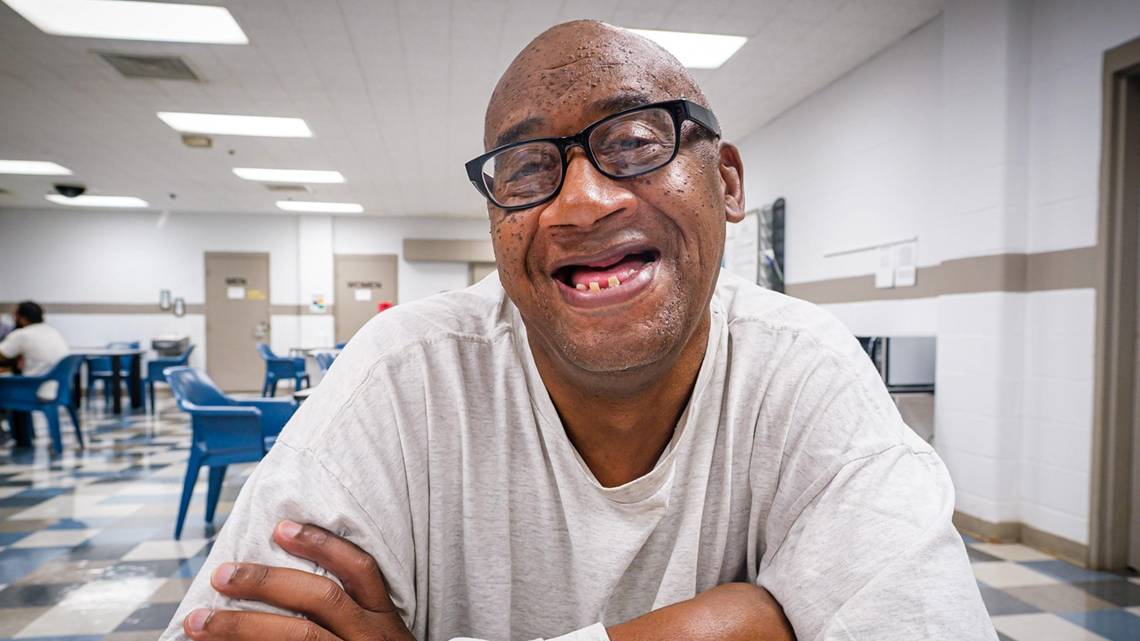
Missouri executes Ernest Johnson despite questions surrounding potential intellectual disability
The Eighth Amendment forbids the execution of individuals with intellectual disabilities.
On Tuesday, Oct. 5, Missouri executed 61-year-old Ernest Johnson, despite claims by his attorney and death penalty opponents that he had an intellectual disability and killing him was unconstitutional.
The execution of Ernest Johnson is unconstitutional under all existing legal precedents. He has the mental capacity of a 9-year-old child and is missing 20% of his brain mass. The Supreme Court’s failure to do anything to stop this is a moral failing of the highest order.
— Sister Helen Prejean (@helenprejean) October 5, 2021
In 1994, Johnson was convicted in the murders of three people during a closing-time robbery at a Casey’s General Store in Columbia: store manager Mary Bratcher, 46, Mable Scruggs, 57, and trainee Fred Jones, 58.
Johnson’s lawyers and anti-death penalty advocates said that his execution would be illegal because he is intellectually disabled and because the drug Missouri uses to kill prisoners could have caused him painful and violent seizures.
The Eighth Amendment, which forbids cruel and unusual punishment, prohibits the execution of people with intellectual disabilities.
On Monday, Oct. 4, Republican Governor Mike Parson denied Johnson clemency and said the state would carry out the scheduled execution. The U.S. Supreme Court denied an application for a stay of execution on Tuesday, Oct. 5.
In a filing to the high court that day, Johnson’s legal team once again stated that IQ tests showed Johnson had the intellectual capacity of a child and wrote that there would be “no tangible harm” if his execution was delayed while lower courts considered the constitutionality of his killing and his disability was further explored.
“This Court has said states simply cannot execute the intellectually disabled,” Johnson’s attorneys wrote, referring to a Supreme Court ruling from 2002.
Pope Francis, two members of Congress and former Democratic governor Bob Holden were among those who spoke out against the execution.
According to a letter from Archbishop Christophe Pierre, the Vatican’s ambassador to the U.S., Pope Francis urged Gov. Parson to grant the inmate “some appropriate form of clemency.”
Pope Francis sent a letter requesting clemency for #ErnestJohnson to @GovParsonMO this week through the Vatican's ambassador to the U.S. The Pope "wishes to place before you the simple fact of Mr. Johnson's humanity and the sacredness of all human life." pic.twitter.com/rpWfTPZOFE
— Sister Helen Prejean (@helenprejean) October 1, 2021
Francis did not comment on the “circumstances of the crime,” but highlighted the larger moral choice that must be considered, regarding the sacredness of all human life.
"His Holiness wishes to place before you the simple fact of Mr. Johnson's humanity and the sacredness of all human life," Pierre wrote.
In a letter sent to Parson’s office Friday, U.S. Reps Cori Bush and Emanuel Cleaver compared the death penalty to slavery and lynching while urging Parson to commute Johnson’s sentence.
“The fact of the matter is that these death sentences are not about justice,” Bush and Cleaver wrote.
It would be a crime against humanity for Ernest Johnson to be executed. @GovParsonMO, you have a moral and constitutional duty to block the execution before 6 PM CT tomorrow.
— Congresswoman Cori Bush (@RepCori) October 4, 2021
Time is running out. https://t.co/abteDXn6H5
“They are about who has institutional power and who doesn’t. Like slavery and lynching did before it, the death penalty perpetuates cycles of trauma, violence and state-sanctioned murder in Black and Brown communities,” the legislators wrote.
On Twitter, Bush also pointed out the racial disparities in the state of Missouri when it comes to executions.
RELATED CONTENT
“The killer of white victims are seven-times more likely to receive the death penalty than the killers of Black victims. The death penalty is a tool that perpetuates racialized violence,” she wrote.
Attorney Jeremy Weis said Johnson was born with fetal alcohol syndrome and also lost one-fifth of his brain tissue with the removal of a benign tumor in 2008. The brain defect left a small hole in his skull, scar tissue and a blank space where the tumor was removed, which could inflict further pain if executed by lethal injection.
In a response, Missouri Attorney General Eric Schmitt, wrote that Johnson’s crime in 1994 fails to justify his claims of an intellectual disability.
"The facts of the offense plainly reflect the offender's ability to plan, strategize, calculate, and scheme effectively," the state wrote to the high court.
Some of the victims' family members were in favor of putting him to death for his actions.
"I don't want to sound inhumane, but if there's any pain, so be it," Bratcher's son, Rob, said in 2015.
In a handwritten statement before his death, Johnson apologized for his crimes and expressed gratitude to his friends, family and legal team for their support.
According to the Death Penalty Information Center, he is the first inmate to be put to death in Missouri since May 2020, and the seventh to be executed in the U.S. this year.
“Ernest Johnson should not have been executed. He was intellectually disabled and categorically ineligible for the death penalty. Ernest was a human being. He committed a terrible crime and was deeply remorseful. This was not justice,” wrote Sister Helen Prejean on Twitter.











LEAVE A COMMENT: